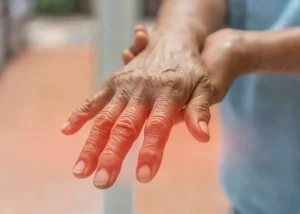
Having a glass of wine with dinner or a beer at a party here and there isn’t going to destroy your gut. But even low amounts of daily drinking and prolonged and heavy use of alcohol can lead to significant problems for your digestive system. causes of alcoholism For those who drink occasionally, these effects on the brain are temporary. With ongoing exposure to alcohol, however, the brain finds ways to compensate for the effects — and these changes in brain chemistry can lead to addiction.
- Ever find yourself returning to alcohol after weeks or months of sobriety?
- In many organs, the effects of alcohol increase over time, and the damage becomes apparent only after years of abuse.
Can Other Drinks Lower Blood Pressure?

That’s because your body already has processes in place that allow it to store excess proteins, carbohydrates and fats. So, your system prioritizes getting rid of alcohol before it can turn its attention to its other work. But when you ingest too much alcohol for your liver to process in a timely manner, a buildup of toxic substances begins to take a toll on your liver. Your liver detoxifies and removes alcohol from your blood through a process known as oxidation. When your liver finishes that process, alcohol gets turned into water and carbon dioxide. From sporting events to social situations to work events, alcohol is often presented as the optimal way to bond with others, celebrate important occasions or just kick back and relax.
Some Physical Signs and Symptoms of Alcohol Addiction
The expectations an individual has about drinking also play a big role. Individuals who have positive expectations about alcohol’s impacts are more likely to develop alcoholism than individuals who have negative expectations about alcohol’s effects. A BAC of 0.09% to 0.25% causes lethargy, sedation, balance problems and blurred vision.
What your biological age can reveal about your health
- The affects can range from dementia and intellectual functioning to debilitating conditions that require long-term care, even if a person has been sober for a period of time.
- The most effective treatment approach addresses addiction and co-occurring disorders simultaneously.
- Excessive alcohol consumption costs the United States more than $220 billion each year which combines lost productivity, health care costs, criminal justice costs and other effects.
- Because your blood is made up of 90% water, the overall volume will decrease when you are dehydrated.
Biological children of alcoholics are substantially more likely to become alcoholics, whether they are raised by alcoholics or non-alcoholics. Similarly, non-biological children of alcoholics who are raised by alcoholics are less likely to become alcoholics than biological children who are raised by alcoholics. Excessive alcohol use can harm people who drink and those around them.

When should I see my healthcare provider?
- But even low amounts of daily drinking and prolonged and heavy use of alcohol can lead to significant problems for your digestive system.
- In these families, heavy drinking is normalized and glamorized; it becomes socially acceptable, expected, and potentially desirable.
- When people drink, alcohol triggers a flood of “feel-good” chemicals similar to morphine called endorphins.
- Treatment centers should ideally have rigorous and reliable screening for substance use disorders and related conditions.
Strategies for Dealing with Alcohol Use Disorder: What to Say and Do
Drinking At An Early Age

